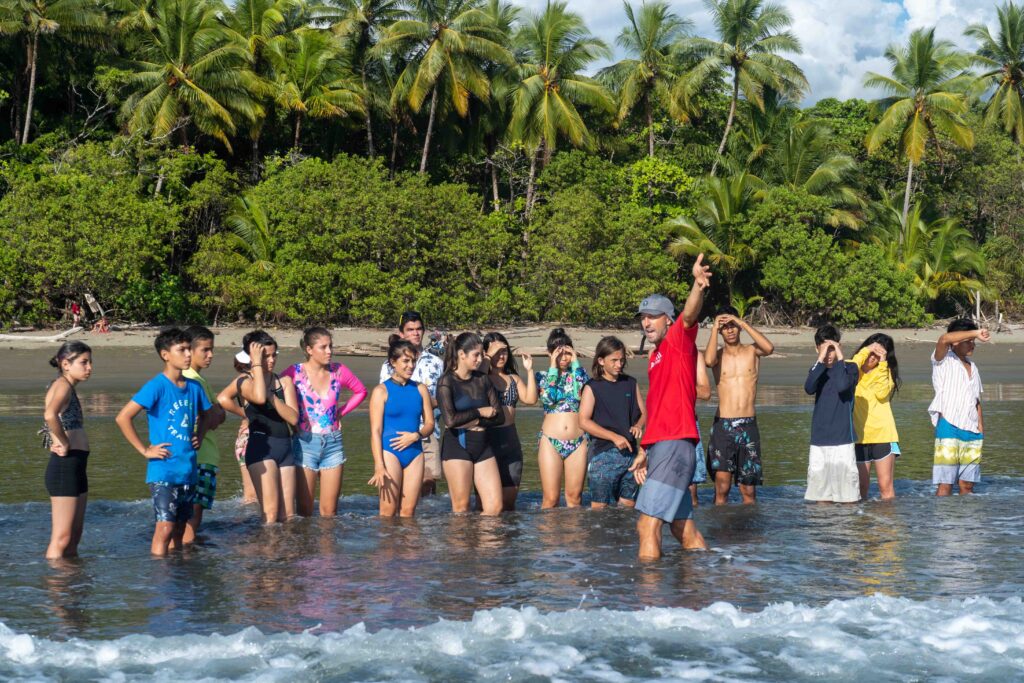In this article, Bodhi Surf + Yoga offers some expert advice on sustainable travel based on our run as an environmentally and socially-conscious surf and yoga lodge in southern Costa Rica.
The co-founders of Bodhi Surf + Yoga are experts in their field and have steered the camp into an award-winning B Corp Certified business, and currently work on a variety of environmental and social initiatives.
Here is some of the key advice we would give to a company or a traveler interested in sustainable travel.
Remember, as a traveler you are an investor. Your money goes a long way in determining the type of development that occurs in foreign countries.
Learning how our core activities of surfing and yoga pair well with sustainability:

Why is sustainable tourism important?
The impact of tourism on society and the environment depends on how the destination country manages its resources. At worst, unmanaged destinations experience the following issues:
- Trash and water pollution
- Coastal erosion
- Reef damage
- Overcrowding
- Overall environmental degradation
Host communities can also face overuse of water supply systems, the electrical grid, and waste management services which were never designed for tourist consumption.
A lack of community programs and support, such as job training, can lead to inequality, crime, and gentrification.
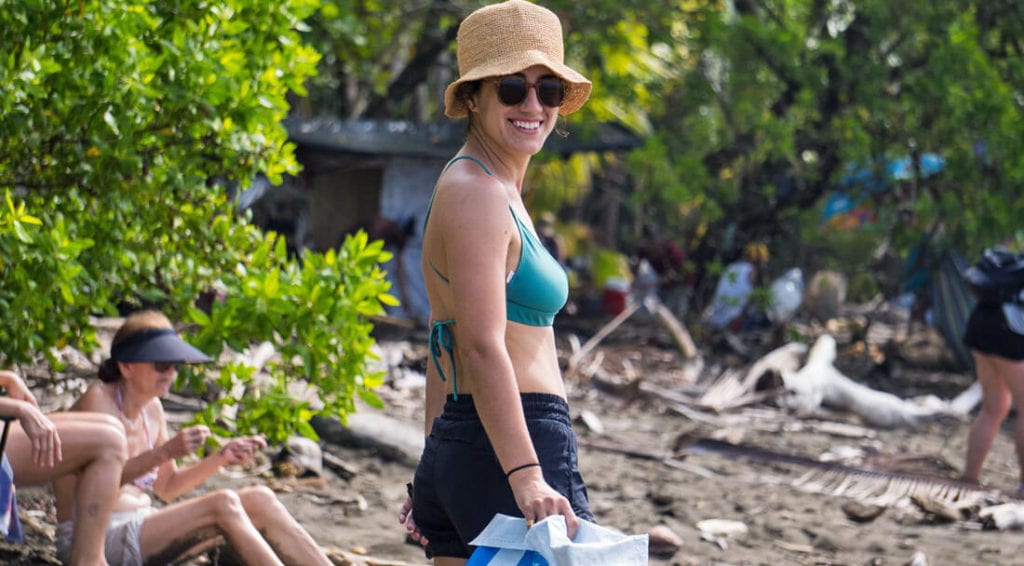
How can your travel impact make a difference?
On the other hand, tourism can also work to improve natural resource management, such as in Costa Rica, a country in which 47% of tourists engage in ecotourism.
Sustainable tourism can educate visitors and members of the public on the importance of:
- Preserving animal habitats
- Reducing plastic waste
- Taking care to reduce energy consumption
These considerations can have a long-term impact on the future viability of a tourist destination and the long-term well-being of the host community and its natural resources.
Furthermore, here at Bodhi Surf + Yoga, we offer lessons inside a Marine Protected Area (MPA) to inspire and educate visitors to return home with a stronger conviction to protect the environment.
This experience leaves clients more in touch with nature and encourages them to reduce their impact in their own countries of origin.
We deeply believe sustainable tourism should have a strong educational component.
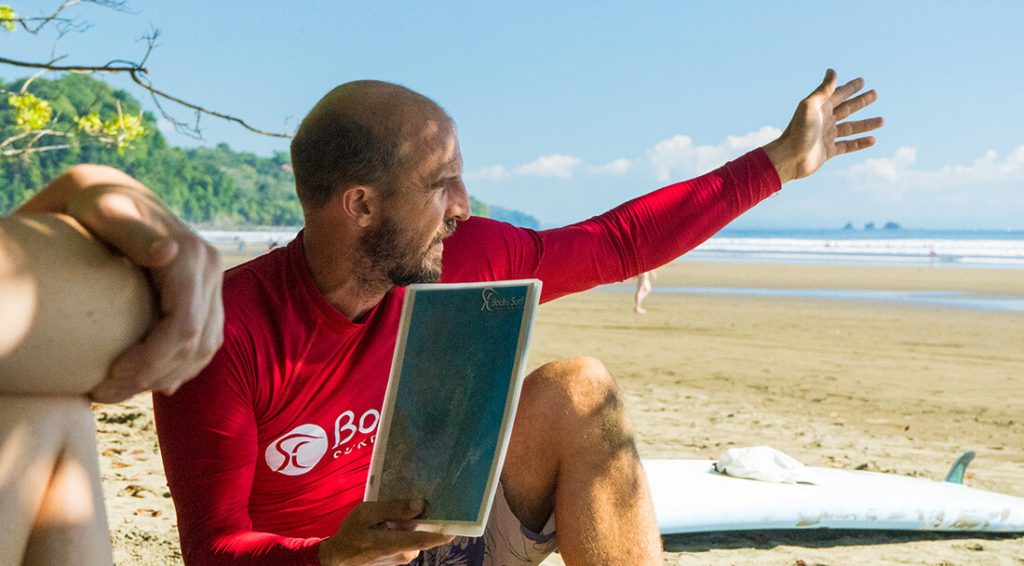
What should travelers consider most for sustainable travel?
First of all, travelers should consider the entire country or region as a whole, and evaluate how they are supporting businesses and the tourism industry to manage their growth and potential negative impact.
Second, tourists can consider which businesses they are giving their tourist dollars to, and where that money goes (whether abroad or back into the local economy).
Lastly, as tourists we are all responsible for our behavior and consumption while visiting places, meaning that individuals also have a degree of responsibility to reduce their impact while traveling.
This means reducing waste while traveling: using reusable water bottles, reef-safe sunscreen, eco-friendly wax, etc. It also means acting in a way that is respectful to the host country in terms of dress, language, and behavior.
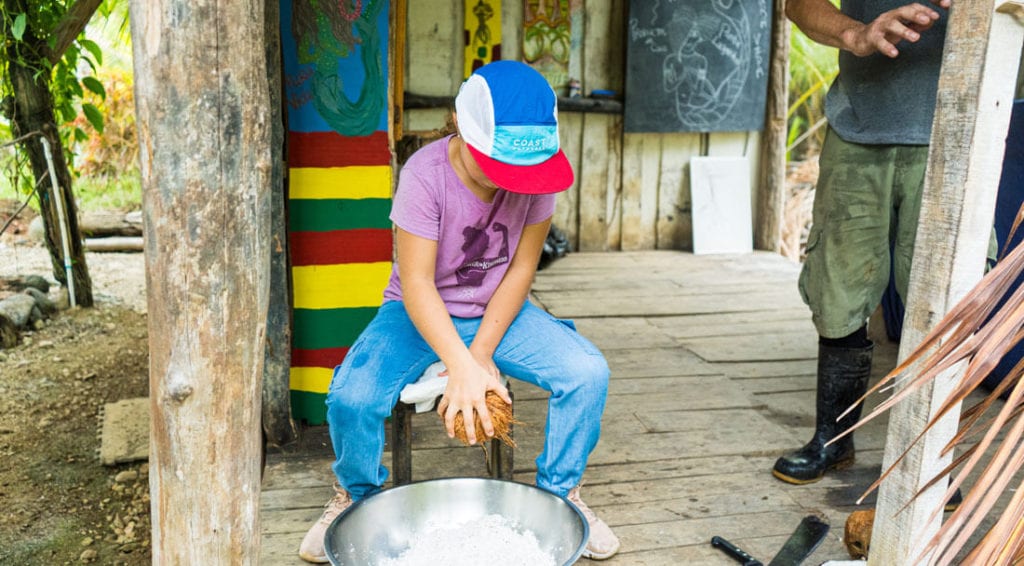
What is “greenwashing”?
As sustainable travelers, we should be wary of any company or product that claims to be “eco-friendly, green, sustainable, natural, etc.” Just because a hotel offers “nature” tours, or has a “natural” feel, doesn’t mean they are having a positive impact on the environment.
Have you ever heard of greenwashing? This is a marketing technique that is used by some companies which takes advantage of trendy terms such as “sustainable travel” or “responsible travel”, even though they don’t actually do much or anything for the environment or considering their footprint.
It is important to look for company-wide certification such as a B Corp, or 1% for the Planet, or, look for small local businesses that have a minimal impact due to their small size, and have an investment in the local social fabric of the place, such as offering job training.
In addition, many tour operators use stock photos of indigenous people or people of color to imply they are connected to, or giving back to the local community when this might not be the case.
A business’s CSR (corporate social responsibility) should focus on its long-term impact on the local community, not with one-time campaigns such as tree-planting, but weekly or monthly initiatives which help develop local talent and resources.

The cleanest transportation options for eco-focused travelers
Walking or cycling is the cleanest transportation option, so tourists should look for walkable cities and communities that limit the need for constant transportation.
Here at Bodhi Surf + Yoga, we invite our guests to join a community walking tour to learn how to get around on foot and feel comfortable doing so. We also have bike rentals on-site to promote zero-emissions transportation.
The next best options are public transportation or shared transportation, particularly electric trains or vehicles which produce less emissions.
It’s also important to keep in mind the source of a country’s electrical grid.
For example, in Costa Rica the electrical grid has been powered by 98% renewable energy for at least seven years in a row, according to the National Center for Energy Control (CENCE). The county’s electricity is generated from hydro, geothermal, wind, biomass, and solar.
That said, Bodhi Surf + Yoga offers a way for its guests to voluntarily offset their flights, partnering with a fellow B Corp company, Native Energy.
Furthermore, co-founder of Bodhi Surf + Yoga, Pilar Salazar is also the president of the local Chamber of Commerce and Tourism, and worked to bring roughly 13 electric car charging stations to our town.
This allows the area to receive electric vehicles from other parts of the country, which further supports sustainable tourism by reducing emissions in our area.

Make your impact a positive one
Choosing a vacation or tour provider that focuses on sustainable travel directly impacts the development of foreign countries.
It’s important to evaluate how countries, regions, and individual companies are managing their impact in terms of energy use, waste disposal, ecological footprint, and social influence.
Natural ecosystems should be preserved and tourist activities should have a minimal effect on the environment. Consider booking cultural tours which support the development of local businesses and talents.
Finally, traveling itself has an impact, but the important thing is to make it conscious and make it positive.
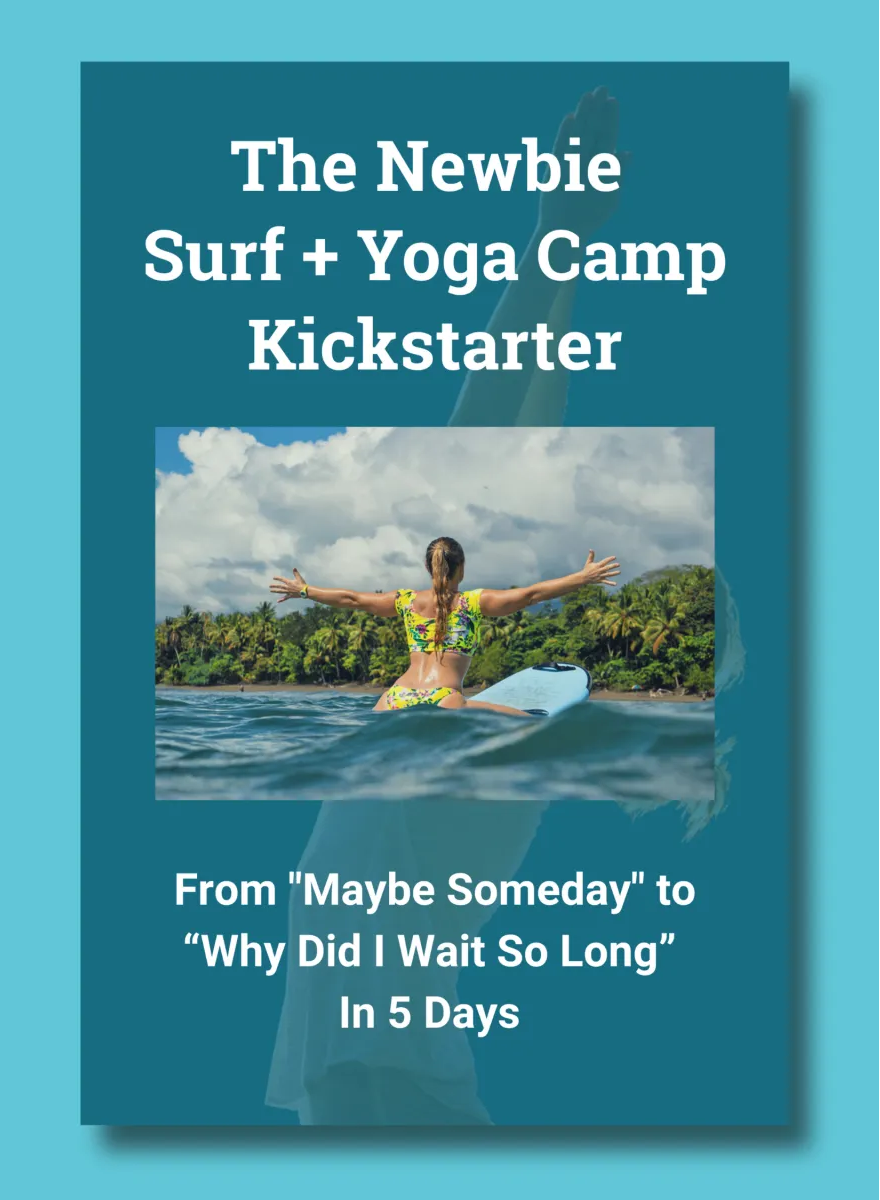
For First-Time Surfers
You Don't Need Experience. You Don't Need Gear. You Just Need This.
Our free 5-day email course that reveals the 5 myths keeping beginners at "I'm not ready" instead of catching their first wave and finding inner peace-and how to overcome them fast.
Change the heading on the Separator tab ->
Search
Change the heading on the Separator tab ->
Most Read Blogs
What is the Meaning of Anjali Mudra?
May 27, 2020
Fitness for Surfers: Workouts, Exercises & Training
February 10, 2022
The Best Places to Eat in Uvita, Costa Rica
May 19, 2022
How to Get From SJO to Costa Ballena, Costa Rica
May 31, 2018
Change the heading on the Separator tab ->
Categories
Categories
- Bodysurfing (5)
- Food (8)
- Responsible Business (6)
- Surfing (66)
- Travel (65)
- Yoga (44)
Change the heading on the Separator tab ->
Newsletter
Thanks for subscribing! Please check your email for further instructions.
Change the heading on the Separator tab ->
Follow Us
Carly Stoenner
Change the heading on the Separator tab ->
Read more
How to Give Back on Your Vacation
Words by George Frost
We’re just here to remind you that we DON’T have to feel bad about traveling. If done correctly and intentionally, traveling can be – and is, positive for the people of the…
A Typical Day: Bodhi Sessions 7 Day Surf + Yoga Camp
Words by George Frost
If you’re looking for a surfing and yoga experience that inspires, educates, and empowers – look no further! Our Bodhi Sessions 7 Day Surf + Yoga Camp is designed to help you…
A Typical Day: Bodhi Sessions 14 Day Surf + Yoga Camp
Words by George Frost
If you’re looking for a surfing and yoga experience that inspires, educates, and empowers – look no further! Our Bodhi Sessions 14 Day Surf + Yoga Camp is designed to help you…

